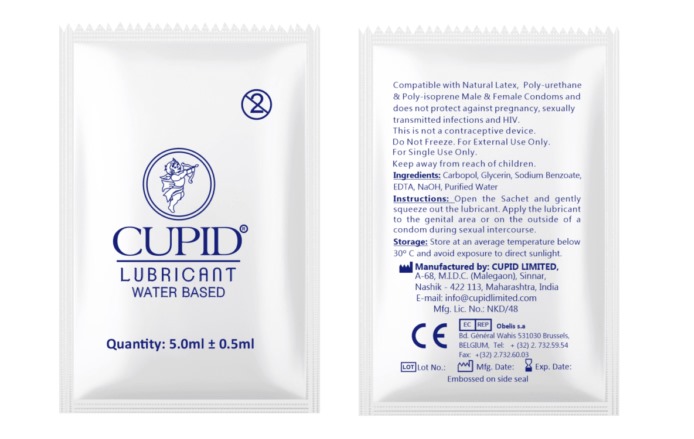.
By Betty Mujungu
Kampala, Uganda: Ms Rose Kobusinge, a 54-year-old mother of four and resident of Fort Portal City, has struggled with the physical and emotional effects of menopause. About three years ago, she began experiencing vaginal dryness, causing her significant discomfort during intimacy with her spouse.
After seeking medical advice, health workers informed her that her symptoms were related to menopause, recommending the use of lubricants during sexual intercourse and advising her to stay hydrated.
“I feel embarrassed to go and openly buy a lubricant or even discuss it,” Kobusinge admitted during a recent women’s community engagement in Fort Portal City.
“I know I need it because I am still sexually active, and I love my husband, who is still very strong sexually. But I don’t want anyone to think… well, many things I may not mention, but you all know. It’s hard enough just to understand,” she said.
Kobusinge’s story reflects the experiences of many women in her age group who face similar challenges.
“I’ve been married for over 30 years. My husband is still sexually active, and I still feel the urge to be with him, but I struggle with dryness and hot flashes all over my body. Sometimes, I don’t even want any touches,” she shared.
In a recent attempt to buy lubricant from a local pharmacy, Kobusinge felt too stigmatized to ask, only to leave with Panadol (paracetamol) instead. “I got to the pharmacy counter, but I was too embarrassed to ask for lubricant. I felt so embarrassed that I asked for Panadol instead. It’s frustrating because I know it would help, but the fear of judgment at my age is just too strong,” she said.
Ms. Tina Birungi, a paralegal officer at Kabarole Women Health Support Initiative, a Key population-led organization in Fort Portal said that inclusivity, accessibility, and support are central to their work. However, the current environment often prevents women from accessing what they need.
“We are fighting stigma and violence on various fronts. Creating safe spaces where everyone can openly discuss their needs including menopause, sexual health, and the importance of lubricants is essential,” said Birungi.

Dr. Gerald Pande, head of Key Population (KP) at the Ministry of Health, said in a recent engagement with key populations and stakeholders in Fort Portal City that, as KPs live within the general community, accessible health services are crucial.
However, he noted that since the enactment of the Anti-Homosexuality Act, the Ministry of Health has recorded numerous cases of KPs missing from care.
‘‘Even with the law in place, we are streamlining and providing clarity on continuity of service delivery for key and priority populations with practical interventions in the different targeted districts/Cities and Countrywide eventually’’ Dr. Pande stated.
The Need for Lubricants
Ms. Amara Evans, the HIV/AIDS focal person in Fort Portal City, highlighted the link between limited access to lubricants and HIV/AIDS among key populations.
“We are witnessing a concerning trend where stigma around sexual health services contributes to new infections. It’s not just about providing lubricants; it’s about creating a safe and supportive environment for everyone seeking help.”
Evans noted that their facilities have started receiving lubricants through redistribution from Fort Portal Regional Referral Hospital. However, access to lubricants for populations beyond key groups remains limited due to resource constraints and supply chain challenges.
“The reluctance to seek out lubricants and sexual health products has consequences beyond personal discomfort. We are committed to addressing the needs of menopausal women and key populations in Fort Portal. we must inform both men and women about the importance of sexual health and the resources available to them,” Evans added.
The Law
On March 21, 2023, the Ugandan Parliament passed the 2023 Anti-Homosexuality Act (AHA), which criminalizes same-sex relations and penalizes individuals or organizations that promote, harbor, or assist those practicing it. Penalties vary based on the severity of the offense, ranging from imprisonment to life sentences, or even the death penalty. Section 11, Promotion of Homosexuality (2), specifies that anyone who promotes homosexuality commits an offense and, if convicted, faces imprisonment of up to twelve years.
Ian Katundu, Drop-In Center Coordinator at Spectrum Uganda in Fort Portal City, said that their work with KPs includes education and resources to help individuals navigate these challenges.
“It was difficult to access lubricants after the signing of the Anti-Homosexuality Act 2023, as they were labeled items promoting homosexuality. Even those available in Drop-In Centers had to be stored in health centers for our personal safety,” Ian explained.
He added that many people fear collecting lubricants, concerned they could be tracked and prosecuted under the law. “Following the Act, we saw a drop in clients accessing care and prevention measures due to fears of persecution, which led to an increase in new HIV infections in KPs,” Ian noted.
Through partnerships and ongoing awareness initiatives on nondiscrimination in service delivery, there is no improvement in access to resources. They receive requested lubricants from Kagote Health Center 3 and distribute them through peer networks.
“Community scorecards at government facilities have improved in addressing stigma associated with gender and sexual orientation. Said Ian.













